Facebook profits surge 71% in second quarter
News feed advertising rates soar despite slowdown in growth of new ad positions
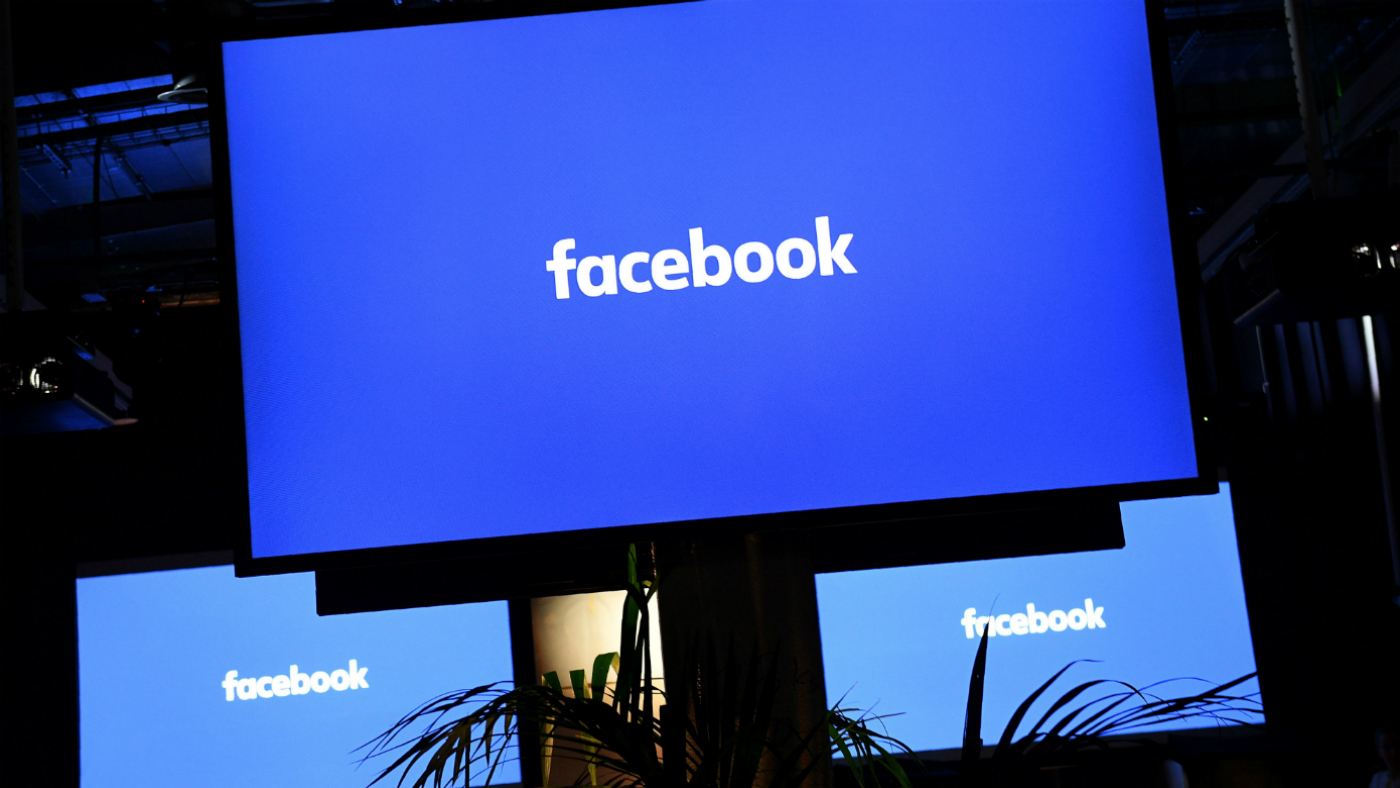
A free daily email with the biggest news stories of the day – and the best features from TheWeek.com
You are now subscribed
Your newsletter sign-up was successful
Facebook's revenues and profits "soared" in the second quarter of this year, says the BBC.
Revenues at the social networking giant leapt 45 per cent in the three months to the end of June to $9.3bn (£7.1bn), while profits advanced even faster, by 71 per cent to $3.9bn (£3bn).
"Facebook has been adding more advertising as well as more consumers" and it now boasts two billion worldwide users a month. That's "more than a quarter of the world's population".
The Week
Escape your echo chamber. Get the facts behind the news, plus analysis from multiple perspectives.

Sign up for The Week's Free Newsletters
From our morning news briefing to a weekly Good News Newsletter, get the best of The Week delivered directly to your inbox.
From our morning news briefing to a weekly Good News Newsletter, get the best of The Week delivered directly to your inbox.
Demand to get in front of that huge audience on the part of businesses is helping Facebook to manage the biggest obstacle to future growth: the number of ads it can keep adding to its core news feed offering.
Bloomberg reports that while growth in the number of new advertising positions saw a "stunning slowdown" to 19 per cent, the amount paid for each advertisement rose 24 per cent.
"It is a sign that Facebook's revenue growth should be sustainable even as it stops cramming more ads in the news feed."
The company needs this cushion as it is still in the early stages of monetising its wider portfolio of products, including its Messenger app, Instagram and Whatsapp.
A free daily email with the biggest news stories of the day – and the best features from TheWeek.com
Facebook said that Instagram is "making an increasing contribution to growth", the BBC reports, and founder Mark Zuckerberg assured investors that it will get the advertising model for Messenger "right in the long term".
Facebook's shares rose more than three per cent in after-hours trading in New York, to $165.
Facebook fined £95m by EU over WhatsApp data
18 May
Facebook has been fined €110m (£95m) for providing incorrect information before its $19bn (£14.5bn) buyout of WhatsApp in 2014.
The social media giant faces a fine of up to one per cent of turnover, or as much as £145m, after the European Commission provisionally found it had breached takeover rules in December.
At issue was Facebook's claim that it could not automatically match the accounts of WhatsApp users with those on its own platform.
"But two years later it launched a service that did just that," says the BBC, by linking accounts using people's mobile phone numbers.
"Facebook said the errors it had made were not intentional," adds the broadcaster.
The company had maintained that it could not link accounts with enough precision for full cross-platform messaging.
But the commission ruled Facebook knew the capability was there when it made its submission in 2014 and so had provided "incorrect or misleading information".
It added that the fine would not reverse its decision to clear the $19bn purchase of WhatsApp and was unrelated to separate investigations into data protection issues.
EU competition commissioner Margrethe Vestager said: "Today's decision sends a clear signal to companies that they must comply with all aspects of EU merger rules, including the obligation to provide correct information."
Facebook to pay $500m in Oculus VR lawsuit
2 February
Facebook has been ordered to pay $500m (£395m) in damages after a US court ruled it had "unlawfully used" virtual reality technology from rival firm ZeniMax.
Jurors found that Palmer Luckey, founder of Oculus VR, had "violated the terms of a non-disclosure agreement".
In addition, Oculus, which was bought by Facebook in 2014, was found "guilty on charges related to false designation and copyright infringement", TechCrunch reports.
Of the $500m settlement, Luckey himself will have to pay $50m (£39), while former Oculus chief executive Brendan Iribe will pay $150m (£118m). Oculus will be liable for $200m (£157) for breaching its non-disclosure agreement, along with $50m for copyright infringement and $50m for false designation.
ZeniMax alleged Oculus had improperly used its code to build the Rift VR headset and launched its lawsuit months after the company was bought by Facebook.
Facebook said it was "obviously disappointed" by the result would appeal the decision.
The outcome of the three-week trial was announced shortly before the social media giant revealed its fourth-quarter sales results, which were better than Wall Street estimates.
Net profit more than doubled to $3.6bn (£2.8bn), helped by 53 per cent growth in advertising revenues. Facebook added it is on course to hit two billion users in the first half of 2017, says the BBC.
For last year as a whole, net profit increased by 177 per cent to $10.2bn (£8bn).
"Even a $500 million jury verdict that went against the company earlier in the day did little to diminish enthusiasm about its finances," says the New York Times.
Facebook's share price ended its New York trading session up more than two per cent to $1.33.
Facebook could face $179m fine over WhatsApp deal
21December
Facebook could be fined hundreds of millions of pounds after the European Commission accused it of giving "misleading" information ahead of its 2014 takeover of messaging platform WhatsApp.
"If the Commission concludes that it was definitely misled, either by accident or design, it could fine Facebook up to one per cent of its turnover," says the BBC.
Based on global revenues of $17.9bn (£14.5bn), that would equate to a fine of anything up to $179m (£145m), says The Verge.
The EC claims it was given incorrect information on data sharing as Facebook had said it could not match users' accounts on its own platform with their profiles on WhatsApp.
However, this August, the social media giant announced it was linking customers' WhatsApp accounts to Facebook through their phone numbers.
"The Commission believes the ability to link the accounts of the two services' users must have existed in 2014," says the BBC.
Facebook "vigorously denies this" and says it has "acted in good faith".
It also says it still "cannot match accounts with the precision needed for full 'cross-platform messaging'".
Facebook's announcement that it would be able to connect the two accounts has already proved controversial: data protection regulators in Germany and the UK have ruled the company must stop collecting user data and delete any it already has.
European regulators have also asked it to stop collecting new data while it investigates whether users have given sufficient permission for their information to be used in this way.
Facebook argues that linking accounts allows it provide "more relevant friend suggestions" and to better deal with spam. Importantly, it also allows the company to better target advertising on both platforms.
Facebook to hire 500 new staff in UK
21 November
Facebook has joined the list of technology giants committing to the UK with the pledge of a sizeable investment and more jobs.
The social networking giant is redeveloping its new headquarters in London's Fitzrovia to accommodate 1,500 staff, 500 more than the original number planned, European head Nicola Mendelsohn told the Confederation of British Industry (CBI) this morning.
"Many of those new roles will be high-skilled engineering jobs as the UK is home to our largest engineering base outside of the US," she said.
The UK is already the base for important Facebook innovations, including "Aquila, a solar-powered, unmanned plane that provides internet connectivity to remote regions", says the BBC.
It adds: "Engineers at Facebook's London office are continuing the development of Workplace, a platform devised to improve communications… within a business, launched last month."
The CBI conference also heard from Prime Minister Theresa May, who announced the government will invest some £2bn in new tax breaks to boost science and research in the UK.
Despite the Brexit vote and the economic uncertainty it has brought, several technology companies have announced big investment plans for London in recent weeks.
Google announced it will invest £1bn in a new headquarters that will up the number of staff it employs in the capital from 4,000 to 7,000, says the BBC, and Apple is to make a major investment in the Battersea Power Station redevelopment to create its new base.
Facebook shares plummet despite bumper profit
3 November
Facebook has announced a huge leap its profits, posting a 59 per cent year-on-year rise in advertising revenue for the third quarter of 2016.
Net income for the social networking site rose 166 per cent from $896m (£726m) in the three months to September 2015 to $2.38bn (£1.93bn) for the same period this year.
Despite those stellar figures, Facebook's shares tumbled as much as seven per cent in after-hours trading in New York. By lunchtime today, those losses had been pared slightly, but it was still set to open five per cent lower.
The negative reaction followed comments from chief financial officer Dave Wehner, who cautioned soaring revenue is likely to slow down "meaningfully" in the next few months.
In particular, he said there was a "limit on the number of ads [Facebook] could put on people's timelines", the BBC reports.
Nevertheless, there were plenty of positives in the quarterly trading update, not least a 16 per cent rise in active monthly users to 1.8 billion, along with "enviable operating margins of 45 per cent", Fortune says.
More than 1.1 billion people log into Facebook on their smartphones each day.
Chief executive Mark Zuckerberg says the company is particularly pleased with how the platform has been used during the US presidential election campaign.
"Facebook is the new town hall and we are proud of the role that we've played in increasing civic engagement," he said.
But it hasn't all been plain sailing, says The Guardian.
Facebook has had to fend off allegations of anti-conservative political bias by editors handling the site's Trending module, plus deal with a replacement algorithm that "promoted fake stories".
In September, the Wall Street Journal revealed the site had "vastly overestimated average viewing time for video ads on its platform for two years", causing outrage among ad buyers and marketers.
Facebook pays £4m in UK tax – but fails to silence critics
10 October
Facebook paid almost 1,000 times more tax in the UK last year than in 2014, but it has failed to quell criticism of its tax affairs the country.
The social network's accounts for the year to the end of December 2015 shows its UK arm generated revenues of £210.7m, more than double the £104m of 2014, says the Daily Telegraph.
On that, it paid £4.17m in corporation tax, a figure well in excess of the £4,327 it paid the previous year, when the firm was the subject of widespread opprobrium.
But this figure still equates to a tax rate of less than two per cent as Facebook's UK business actually generated a loss of £52.5m before tax for the year, a much bigger deficit than the £28.5bn logged in 2014.
As in the previous year, the company would have been profitable were it not for the £71m it paid into a share-based staff bonus scheme, some £104,105 for each employee. Last year, Facebook paid bonuses totaling £35m.
Worse still for angry campaigners arguing the tech giant paid too little tax, changes to HMRC rules allowing payment to be offset against Facebook's tax bill resulted in a credit of £11m, which can be used to reduce tax in future years.
Many are angry Facebook reduces the amount of tax it has to pay in cash by handing out share bonuses to its staff.
Experts say that, as in previous years, no sales were booked in the UK and all revenues are for marketing-based activities, making it hard to assess how much Facebook should be paying.
"The Facebook UK accounts just record the costs it incurs in the UK, with a bit of profit added on to keep HMRC happy," said Richard Murphy, a chartered accountant and at City University, told the BBC.
From this year, Facebook has vowed to book sales from its biggest UK customers in their home country, rather than in Ireland. This pledge doesn't cover online sales – and obviously that tax credit will reduce the impact on its bottom line at least initially.
-
 What is the endgame in the DHS shutdown?
What is the endgame in the DHS shutdown?Today’s Big Question Democrats want to rein in ICE’s immigration crackdown
-
 ‘Poor time management isn’t just an inconvenience’
‘Poor time management isn’t just an inconvenience’Instant Opinion Opinion, comment and editorials of the day
-
 Bad Bunny’s Super Bowl: A win for unity
Bad Bunny’s Super Bowl: A win for unityFeature The global superstar's halftime show was a celebration for everyone to enjoy
-
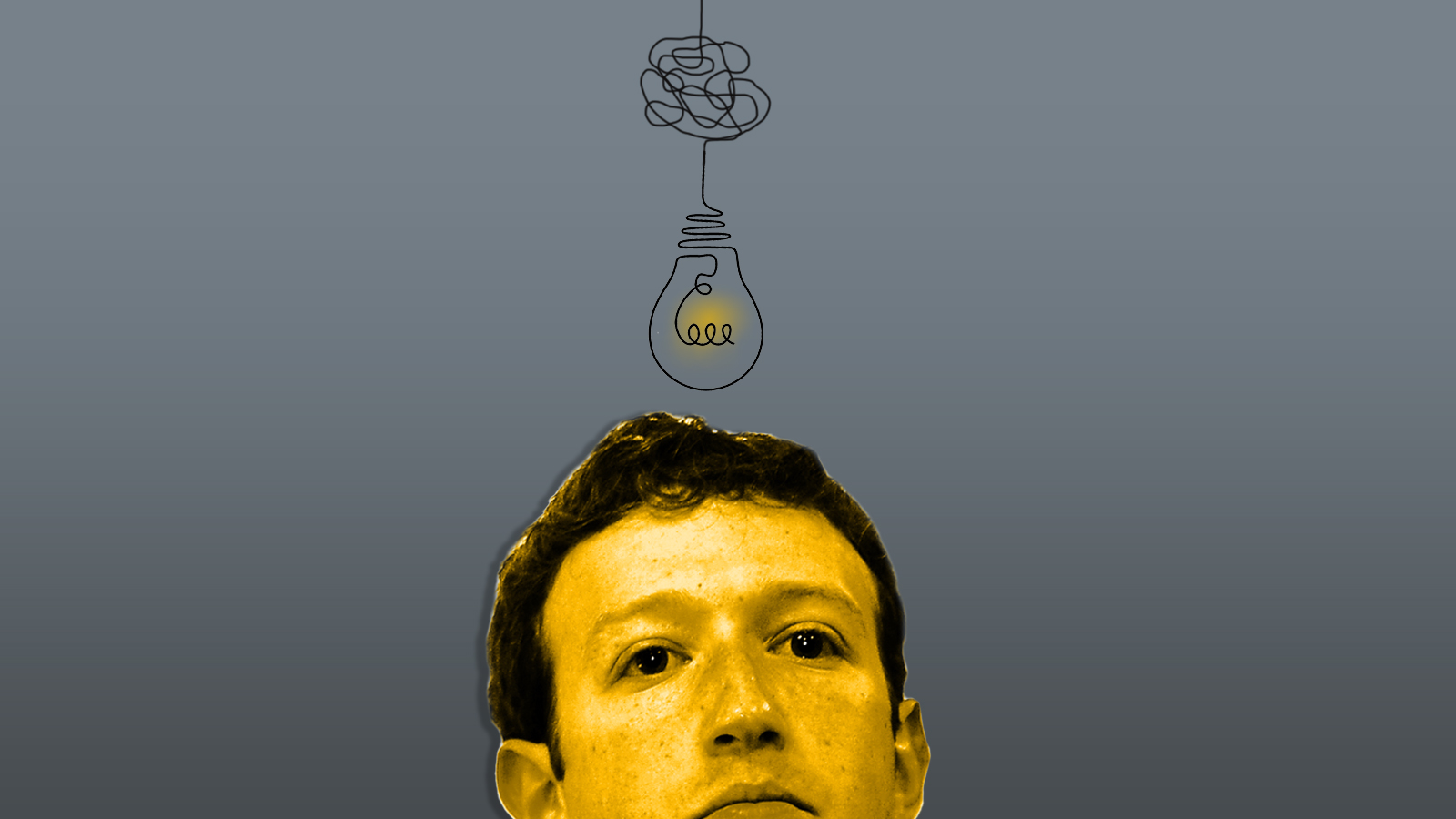 Is Mark Zuckerberg out of ideas?
Is Mark Zuckerberg out of ideas?Speed Read The subscription service Meta Verified sounds awfully familiar
-
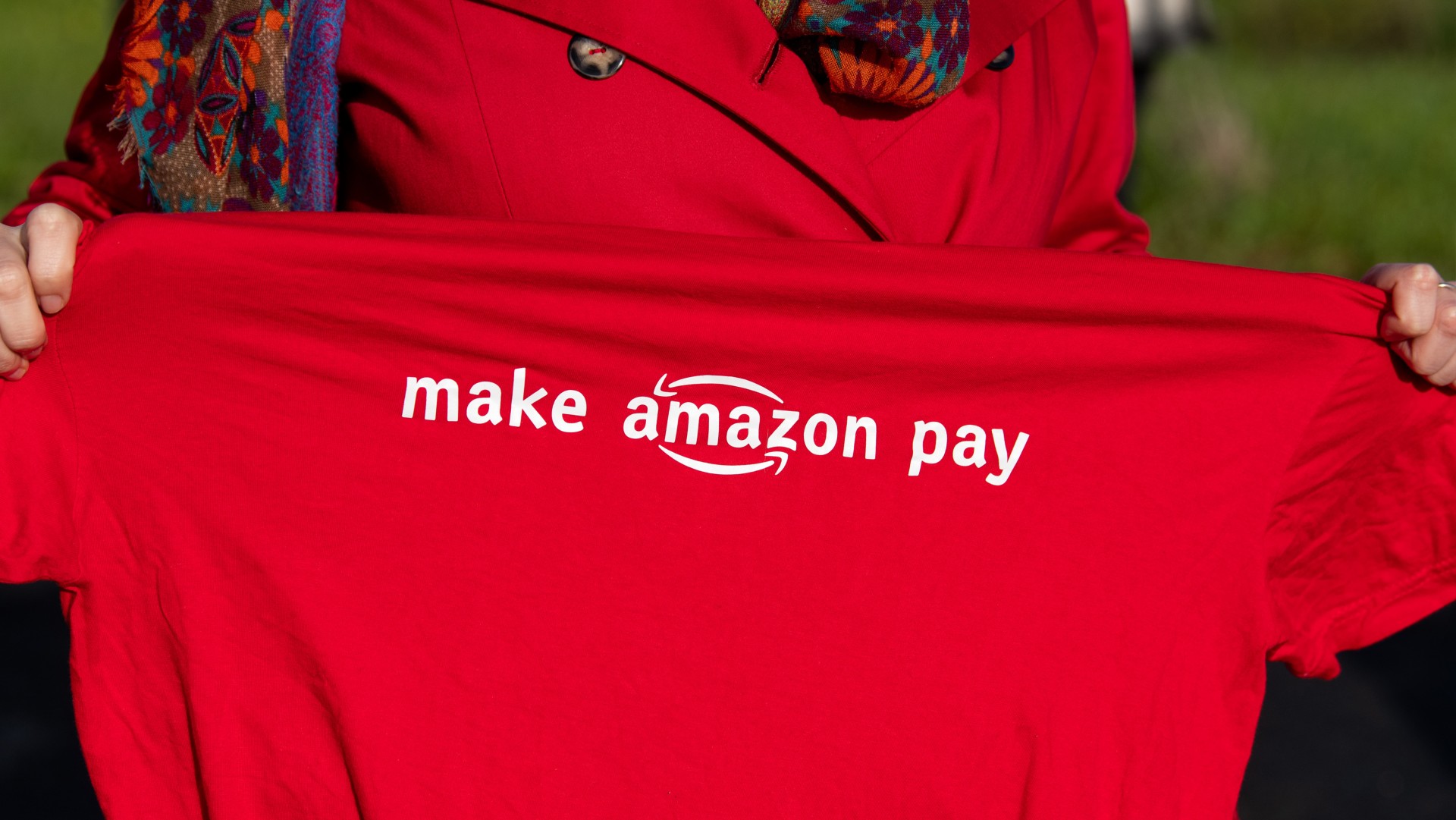 How Amazon’s first UK strike could be a sign of things to come
How Amazon’s first UK strike could be a sign of things to comefeature Big Tech is facing increasing pressure from unions as cost-of-living crisis fuels nationwide unrest
-
 Meta: Zuckerberg's grand bet goes badly wrong
Meta: Zuckerberg's grand bet goes badly wrongfeature
-
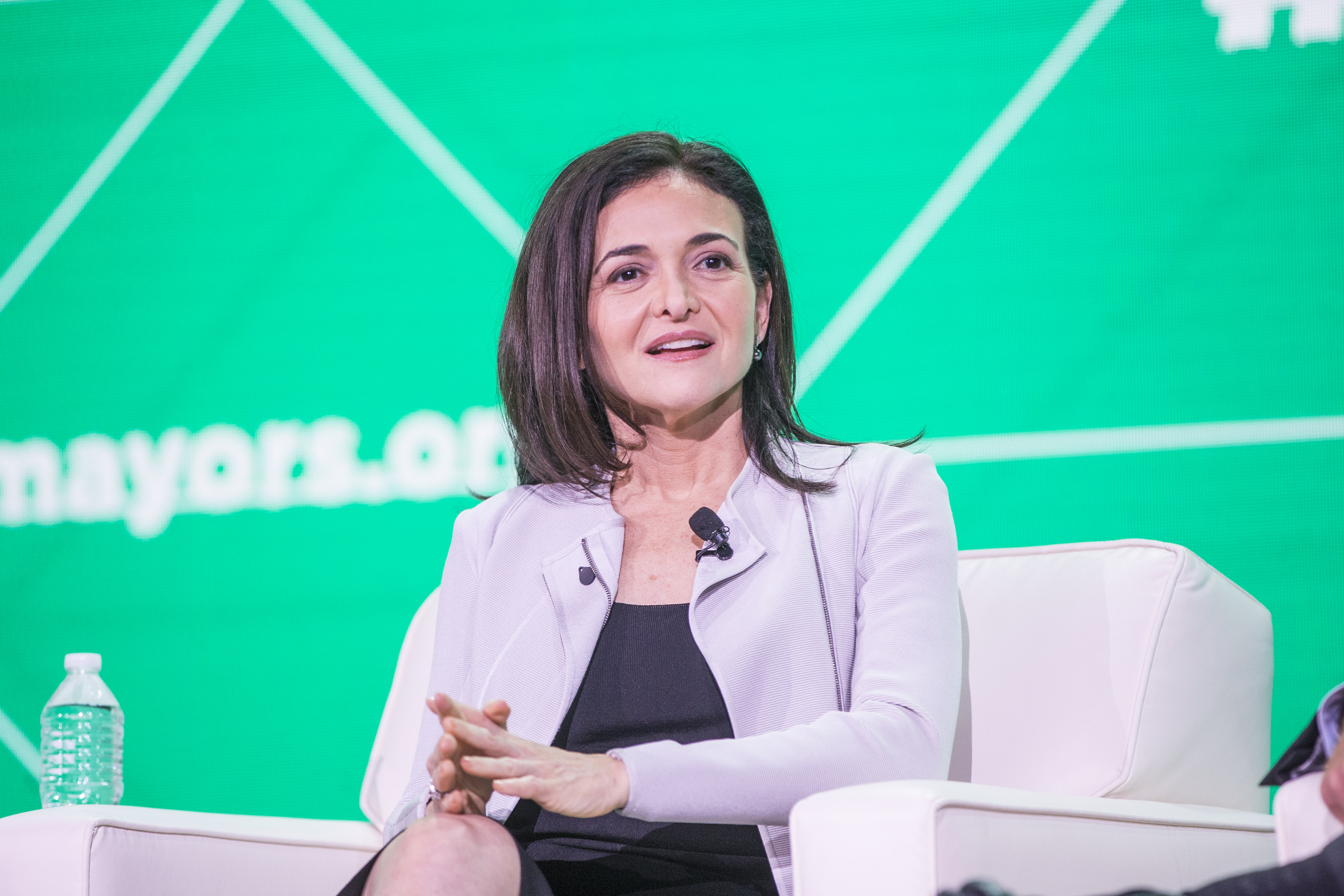 Leaning out: The most powerful woman in tech moves on
Leaning out: The most powerful woman in tech moves onfeature
-
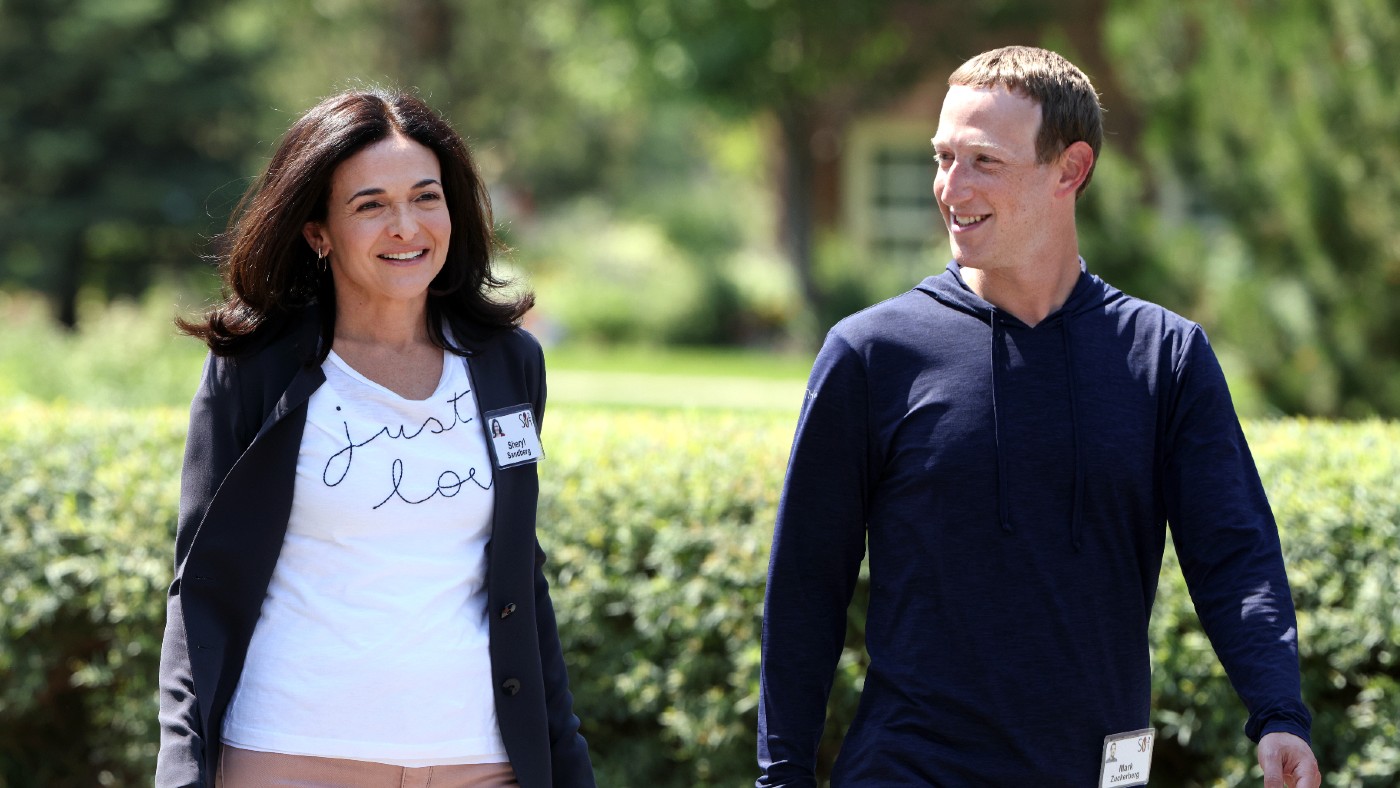 Sheryl Sandberg’s mixed legacy
Sheryl Sandberg’s mixed legacyIn the Spotlight The most important woman in tech is leaving Meta. Will she be missed?
-
 How toxic superusers determine what everyone else sees on Facebook
How toxic superusers determine what everyone else sees on FacebookSpeed Read
-
 Meta’s big plunge: ‘Zuck shock’ is a nasty ‘brush with reality’
Meta’s big plunge: ‘Zuck shock’ is a nasty ‘brush with reality’In the Spotlight Why have the social media giant’s shares fallen off a cliff?
-
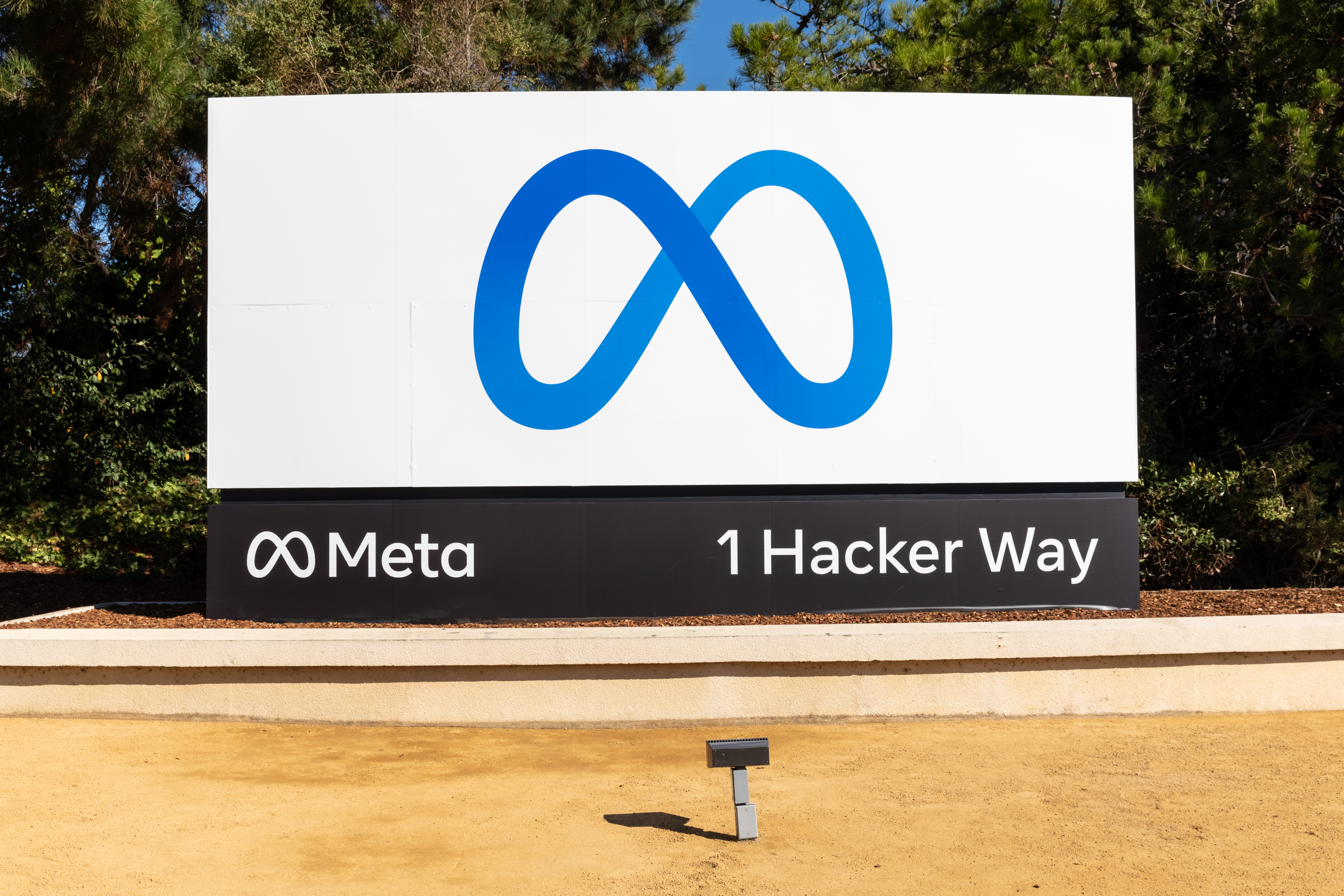 Facebook lost daily users for the 1st time in its history last quarter, and investors were not pleased
Facebook lost daily users for the 1st time in its history last quarter, and investors were not pleasedSpeed Read